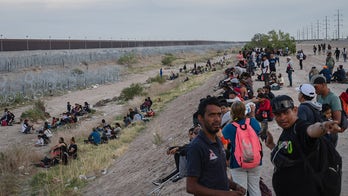Amidst rising political violence, President Biden urges an end to the hostility, highlighting the need for compassion and neighborliness inspired by the heroic actions of Sir Nicholas Winton during World War II. Biden's words echo a profound message: we must recognize each other's humanity and treat one another with respect, regardless of differences.
The recent assassination attempt on former President Trump has sent shockwaves through the nation, serving as a chilling reminder of the escalating political violence that has become normalized. President Biden's subsequent address from the Oval Office echoed a profound message: we must lay aside hostility and embrace neighborliness to heal the nation's wounds.

The Duty of Neighborliness: Quenching Political Violence and Polarization
The story of Sir Nicholas Winton, a young stockbroker who rescued 669 Jewish children from Nazi-occupied Czechoslovakia, provides a poignant example of the impact individuals can have on society. Despite the daunting obstacles he faced, Winton refused to be deterred, seeing his duty as a neighbor in a global community.
Inspiration from Winton's legacy is particularly relevant today, as our nation approaches an election marked by extreme polarization. Too often, violent rhetoric has become commonplace in the political arena, fueling hostility and potentially leading to violence.

The Duty of Neighborliness: Quenching Political Violence and Polarization
Biden's speech emphasized the responsibility of every citizen to reject violent language and actions. He stressed that violence has no place in American society and that it must not be normalized. The nation's laws and rights come with an inherent responsibility to be good neighbors and to love one another.
This responsibility extends beyond lip service or empty promises. It requires active engagement, starting with the simple act of recognizing each other's humanity. By assuming good intentions and acknowledging unconscious biases, we can begin to bridge the divides that separate us.

The Duty of Neighborliness: Quenching Political Violence and Polarization
Our nation's history is shaped by both forced and voluntary migration, resulting in a diverse society with varying experiences. It is imperative that we acknowledge the disparities and challenges faced by different communities and demand that laws and policies respect constitutional values.
This means consulting with impacted communities before enacting laws that restrict access to reproductive healthcare or limit civil rights protections. It also means confronting the injustices faced by LGBTQ+ individuals and ensuring their rights and dignity are fully recognized.

The Duty of Neighborliness: Quenching Political Violence and Polarization
The duty of neighborliness extends to all members of society, regardless of age or background. Young people who are boldly advocating for truth and inclusivity deserve our support. They are the future of our nation, and we must ensure that they feel valued and respected.
To end the cycle of political violence and polarization, we must follow the example of Sir Nicholas Winton. We must see each other as neighbors, worthy of respect, dignity, and equitable treatment. This behavior change must begin today, before another violent act exposes the ugly underbelly of American political life.

The Duty of Neighborliness: Quenching Political Violence and Polarization
By embracing neighborliness and rejecting violence, we can pave the path towards a more harmonious and just society.













